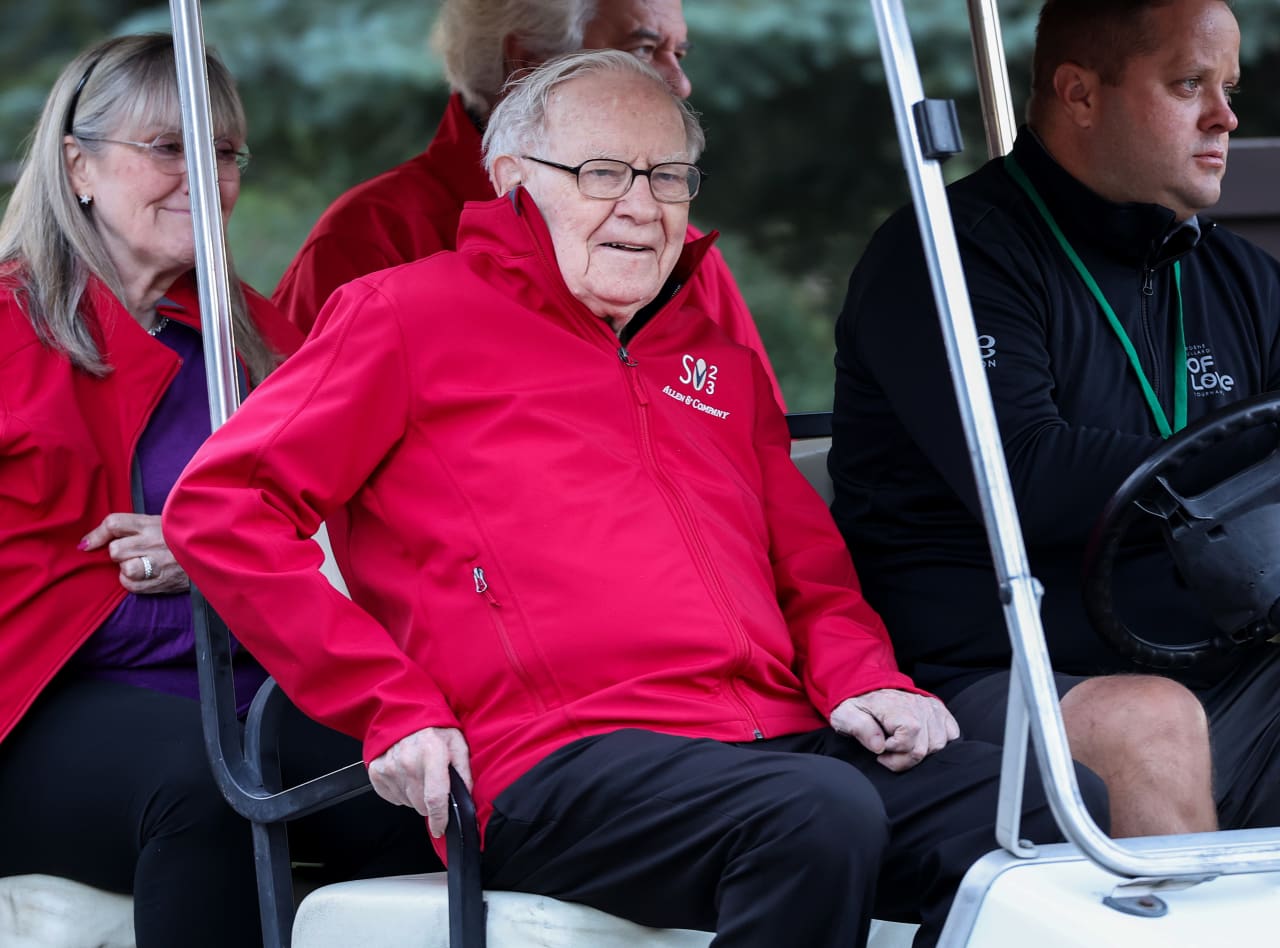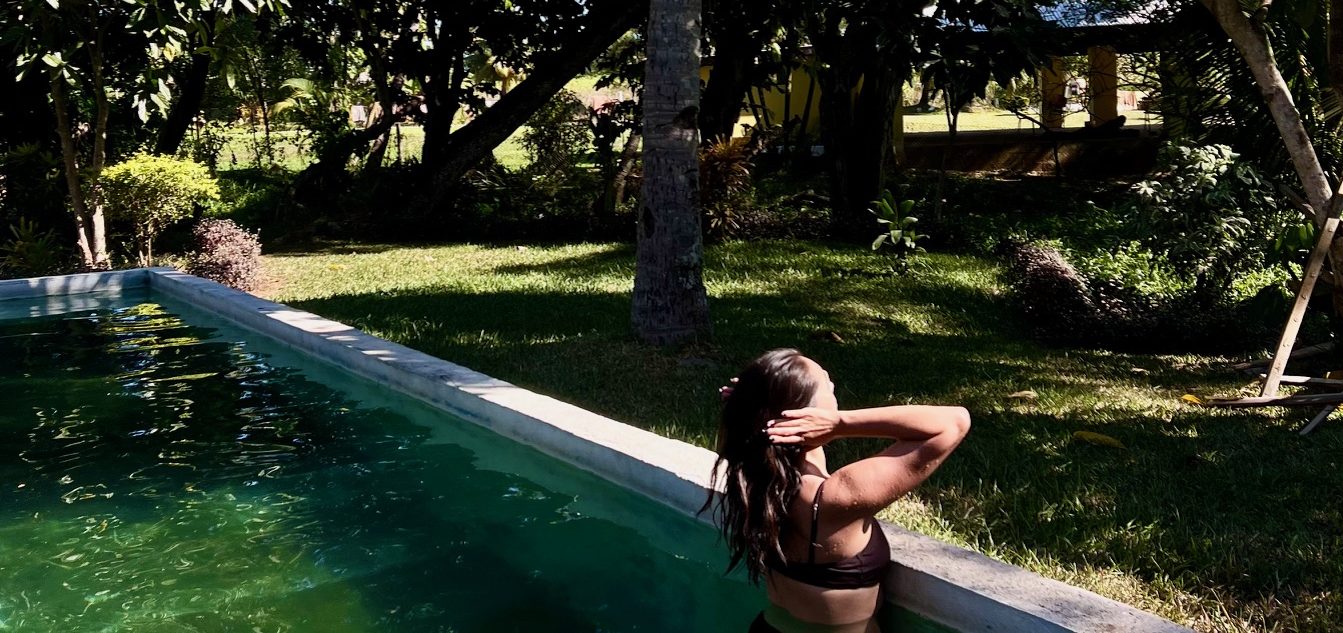Take a Cue From Warren Buffett: Be Flexible With Philanthropic Strategies
Late last year, Warren Buffett announced that his fortune will be directed to a charitable trust managed by his three children when he dies.
The announcement, made via Berkshire Hathaway where Buffett, 93, is chairman and CEO, was the first indication of how the famous investor planned to distribute his assets upon his death.
The fact Buffett waited to make these plans until he was 93—and his children were between the ages of 65 and 70—is not necessarily unusual for very wealthy people whose estate plans, and philanthropic giving strategies, constantly evolve, according to wealth management experts.
“We tell our clients all the time, you want to try to have as much flexibility in your future planning as possible because you just don’t know how situations are going to change,” says Paul Karger, co-founder and managing director of wealth advisory firm TwinFocus in Boston.
Buffett, for instance, made a lifetime commitment in 2006 to distribute annual grants to five foundations: the Bill and Melinda Gates Foundation, the Susan Thompson Buffett Foundation (named for his late wife), and foundations run by each of children. Since then, he has distributed Berkshire B shares valued at about US$55 billion when they were received to these organizations, Buffett said in a June 28 statement issued by Berkshire Hathaway. The Bill and Melinda Gates Foundation—where Buffett served as a board member until Gates and French Gates announced their divorce in 2021—had received US$39.3 billion through 2023, the organization’s website said.
Annual gifts to those foundations will continue until Buffett dies and his remaining assets are transferred to the charitable trust. In the June 28 statement, Buffett said his current holdings of Berkshire A shares (which he converts to B shares to make the charitable contributions) “are worth about US$127 billion, roughly 99.5% of my net worth.”
When Buffett announced his intentions for the distribution of this fortune, he said his children “were not fully prepared” in 2006 to serve as executors of his will and trustees of the charitable trust “but they are now.”
Recognising that things change and that “it’s impossible to prepare for every scenario,” is a lesson that Karger often preaches.
Currently, Karger’s firm is working with a billionaire family that wants to give all their money away to charity. “They don’t want their kids to have any,” Karger says.
So TwinFocus is trying to introduce planning techniques to “baby-step” this family’s intentions, “because some of those decisions are not reversible,” he says. “There are seasons to our lives, and we think about life differently in different seasons. You don’t want to live with a mistake that you can’t fix, especially with this level of wealth.”
Justin Flach, managing director for wealth strategy in the San Diego office of Ascent Private Capital Management, the ultra-high-net-worth division of U.S. Bank Wealth Management, says Buffett’s strategy of providing gifts to his children’s foundations since 2006 and now deciding to create a charitable trust funded by his assets that they will manage, is an established approach.
“That’s something you see very commonly with families is that as the family starts to dip its toe into philanthropy, they need to learn together and train together and make sure they’re aligned about how they want to proceed,” Flach says. “Something like this isn’t uncommon because it just shows a family adapting over time.”
Flach also encourages ultra-rich families to begin giving away wealth during their lifetime, as Buffett has done, and he sees far more of them taking this approach today. By doing so, philanthropists can experience “their full empathy” during their lifetime. It also means they can find out if their charitable strategy works or not.
“It allows them to assess [whether] the people they’re working with are the right partners,” Flach says. It also allows them to see whether those they hope to hand their charitable assets off to are “trained and ready to take over when they’re gone.”
A charitable trust—the structure that Buffett is using to absorb his wealth—is an “irrevocable” vehicle for tax purposes, meaning, the assets in the trust can’t be taken out for anything other than distributing funds to nonprofits.
In Buffett’s case, his three children “must act unanimously” when deciding where the trust’s assets will be granted, he said. They also must designate successors. Buffett indicated he isn’t placing more rules on the trust because “wise trustees above ground are preferable to any strictures written by someone long gone.”
He did say, however, that the trust will be spent down “after a decade or so,” and will have a “lean staff.”
Setting up a charitable trust, such as the one Buffett’s children will direct, serves two purposes. It “helps them fund the family’s philanthropy long after the family members have passed,” Flach says, and “there’s an estate tax deduction for gifts to charity at death. That can be a very valuable way to reduce your estate taxes.”
The trust structure is similar to a private foundation, although only a trust can be created through a will, he says. Both vehicles are treated the same for tax purposes and have the same disclosure requirements, meaning they have to tell the IRS where the money is granted and they have to distribute at least 5% of assets each year to qualified nonprofits.
Though Buffett has chosen to have his trust spent down, a family could instead create a perpetual trust that would live on through generations, Flach says.
For very wealthy families, it’s important to regularly review estate plans, including plans for charitable giving. At least every five years, documents should be reviewed to ensure past choices still make sense and can be amended as needed, Karger says.
The super wealthy, those with assets of US$100 million or more, should consider using their current lifetime gift exclusion—currently US$13.1 million per person—to create an irrevocable trust. That would allow an individual “to move assets outside of their estate [and] let them grow for the next generation estate tax exempt,” he says.
Flach agrees wealthy families should regularly assess their estate and philanthropic planning, which, depending on a family’s situation or desire, could be annually or every few years.
“Going back through and making sure that you’d make the same decisions today
that you made when you created the plan, based on the facts of what they are today,
is a really good exercise,” Flach says. “It allows you to make sure that when ultimately you do pass on, or when you’re ultimately giving to a philanthropic cause, that your wishes are truly being carried out, as opposed to what your wishes may have been 20, 30, 40 years ago.”
 Copyright 2020, Dow Jones & Company, Inc. All Rights Reserved Worldwide. LEARN MORE
Copyright 2020, Dow Jones & Company, Inc. All Rights Reserved Worldwide. LEARN MORE
Australia’s housing market defies forecasts as prices surge past pandemic-era benchmarks.
Records keep falling in 2025 as harbourfront, beachfront and blue-chip estates crowd the top of the market.
JPMorgan Chase has a ‘strong bias’ against adding staff, while Walmart is keeping its head count flat. Major employers are in a new, ultra lean era.
It’s the corporate gamble of the moment: Can you run a company, increasing sales and juicing profits, without adding people?
American employers are increasingly making the calculation that they can keep the size of their teams flat—or shrink through layoffs—without harming their businesses.
Part of that thinking is the belief that artificial intelligence will be used to pick up some of the slack and automate more processes. Companies are also hesitant to make any moves in an economy many still describe as uncertain.
JPMorgan Chase’s chief financial officer told investors recently that the bank now has a “very strong bias against having the reflective response” to hire more people for any given need. Aerospace and defense company RTX boasted last week that its sales rose even without adding employees.
Goldman Sachs , meanwhile, sent a memo to staffers this month saying the firm “will constrain head count growth through the end of the year” and reduce roles that could be more efficient with AI. Walmart , the nation’s largest private employer, also said it plans to keep its head count roughly flat over the next three years, even as its sales grow.
“If people are getting more productive, you don’t need to hire more people,” Brian Chesky , Airbnb’s chief executive, said in an interview. “I see a lot of companies pre-emptively holding the line, forecasting and hoping that they can have smaller workforces.”
Airbnb employs around 7,000 people, and Chesky says he doesn’t expect that number to grow much over the next year. With the help of AI, he said he hopes that “the team we already have can get considerably more work done.”
Many companies seem intent on embracing a new, ultralean model of staffing, one where more roles are kept unfilled and hiring is treated as a last resort. At Intuit , every time a job comes open, managers are pushed to justify why they need to backfill it, said Sandeep Aujla , the company’s chief financial officer. The new rigor around hiring helps combat corporate bloat.
“That typical behavior that settles in—and we’re all guilty of it—is, historically, if someone leaves, if Jane Doe leaves, I’ve got to backfill Jane,” Aujla said in an interview. Now, when someone quits, the company asks: “Is there an opportunity for us to rethink how we staff?”
Intuit has chosen not to replace certain roles in its finance, legal and customer-support functions, he said. In its last fiscal year, the company’s revenue rose 16% even as its head count stayed flat, and it is planning only modest hiring in the current year.
The desire to avoid hiring or filling jobs reflects a growing push among executives to see a return on their AI spending. On earnings calls, mentions of ROI and AI investments are increasing, according to an analysis by AlphaSense, reflecting heightened interest from analysts and investors that companies make good on the millions they are pouring into AI.
Many executives hope that software coding assistants and armies of digital agents will keep improving—even if the current results still at times leave something to be desired.
The widespread caution in hiring now is frustrating job seekers and leading many employees within organizations to feel stuck in place, unable to ascend or take on new roles, workers and bosses say.
Inside many large companies, HR chiefs also say it is becoming increasingly difficult to predict just how many employees will be needed as technology takes on more of the work.
Some employers seem to think that fewer employees will actually improve operations.
Meta Platforms this past week said it is cutting 600 jobs in its AI division, a move some leaders hailed as a way to cut down on bureaucracy.
“By reducing the size of our team, fewer conversations will be required to make a decision, and each person will be more load-bearing and have more scope and impact,” Alexandr Wang , Meta’s chief AI officer, wrote in a memo to staff seen by The Wall Street Journal.
Though layoffs haven’t been widespread through the economy, some companies are making cuts. Target on Thursday said it would cut about 1,000 corporate employees, and close another 800 open positions, totaling around 8% of its corporate workforce. Michael Fiddelke , Target’s incoming CEO, said in a memo sent to staff that too “many layers and overlapping work have slowed decisions, making it harder to bring ideas to life.”
A range of other employers, from the electric-truck maker Rivian to cable and broadband provider Charter Communications , have announced their own staff cuts in recent weeks, too.
Operating with fewer people can still pose risks for companies by straining existing staffers or hurting efforts to develop future leaders, executives and economists say. “It’s a bit of a double-edged sword,” said Matthew Martin , senior U.S. economist at Oxford Economics. “You want to keep your head count costs down now—but you also have to have an eye on the future.”
A bold new era for Australian luxury: MAISON de SABRÉ launches The Palais, a flagship handbag eight years in the making.
From mud baths to herbal massages, Fiji’s heat rituals turned one winter escape into a soul-deep reset.
























